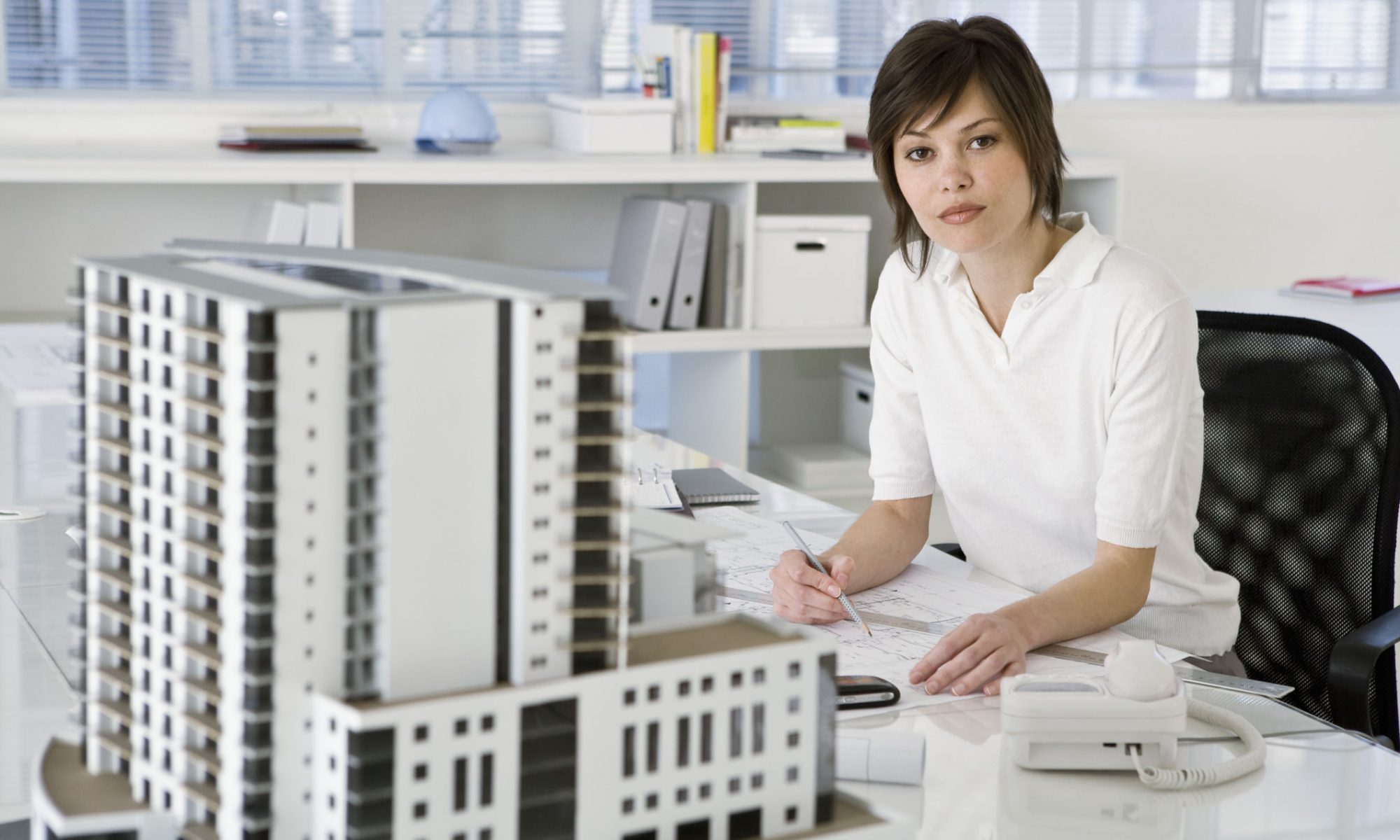<figure>
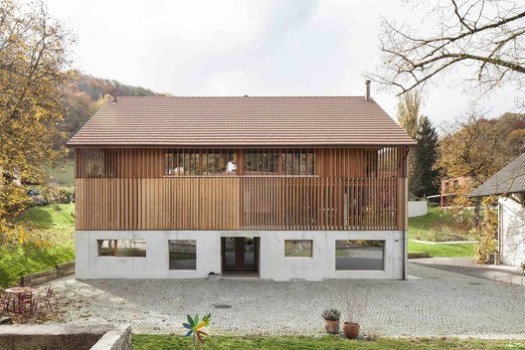 © Börje Müller
© Börje Müller
- Architects: Beck + Oser Architekten
- Location: Hofstetten-Flüh, Switzerland
- Architects In Charge: Mirjam Furger, Roger Oser
- Area: 550.0 m2
- Project Year: 2013
- Photographs: Börje Müller
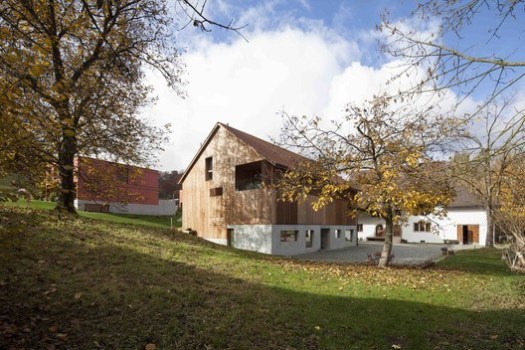 © Börje Müller
© Börje Müller
From the architect. The dwelling house is part of the design plan Mühle, which primarily aims to preserve the protected mill and the surroundings of the mill. On the south side the building group will be completed with the replacement building for the burnt-down barn, giving it the necessary spatial and historically justified importance. The result is an attractive place of a pleasant size, usable for various activities. Since the houses on the Sternenbergstrasse, which are also part of the design plan, are at a reasonable distance and clearly distinguished in the architectural formulation, the legibility of the historical ensemble is strengthened.
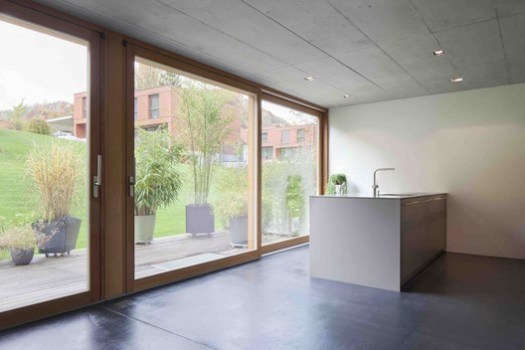 © Börje Müller
© Börje Müller
The four duplex apartments are all directly accessible from the mill court. The
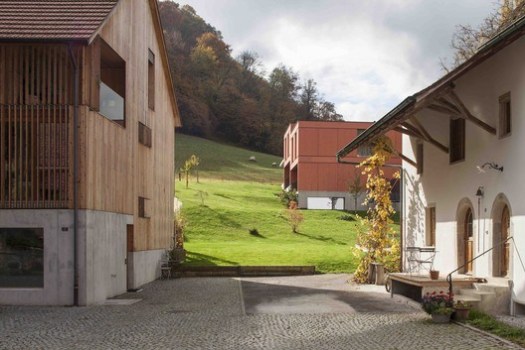
Thanks to a clever lighting control no openings in the roof were necessary. The external appearance with vertical wooden slats, solid base and tiled roof points to the original use, but converts the theme of the barn in a contemporary form. Sustainability in terms of resource use is given by the careful handling of space and size, as well as the use of raw materials and the equipment with environmentally friendly pellet heating, which is also used for hot water production.
 © Börje Müller
© Börje Müller
<img src="http://feeds.feedburner.com/~r/ArchDaily/~4/JKyDP_4I4sw" height="1" width="1" alt=""/>
